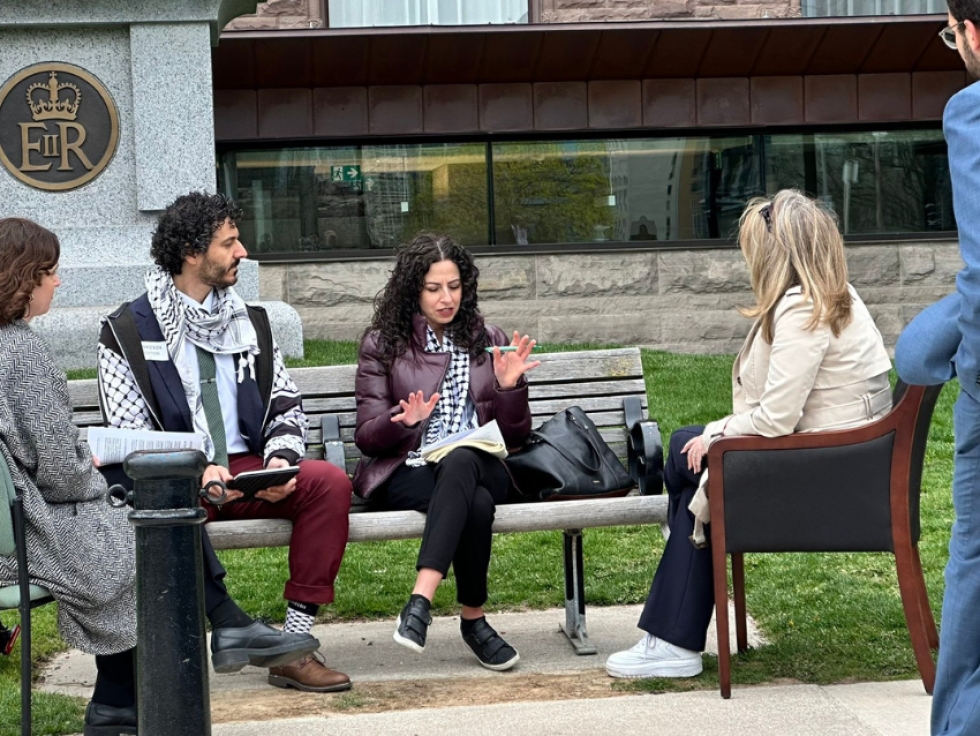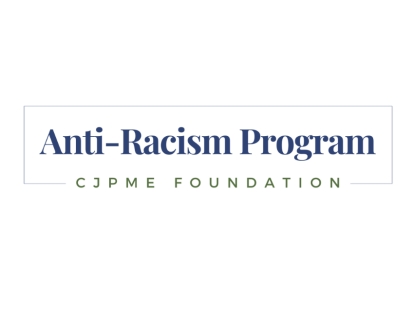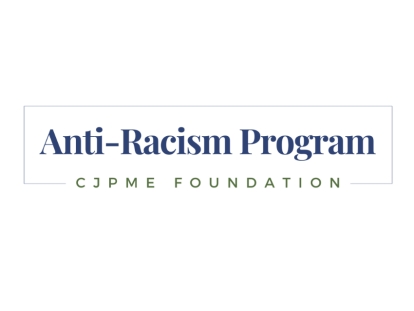 Members of the Arab Canadian Lawyers Association had a meeting scheduled with NDP leader Marit Stiles. They were barred from entering QP due to the keffiyeh ban. They’re now having an outdoor meeting on the legislative grounds.
Colin D'Mello | Global News
Members of the Arab Canadian Lawyers Association had a meeting scheduled with NDP leader Marit Stiles. They were barred from entering QP due to the keffiyeh ban. They’re now having an outdoor meeting on the legislative grounds.
Colin D'Mello | Global News
Apr
Arab Canadian Lawyers Association (ACLA) Statement Regarding Anti-Palestinian Racism and the Queen's Park Keffiyeh Ban
Written by Arab Canadian Lawyers AssociationApril 24, 2024 Arab Canadian Lawyers Association (ACLA) statement regarding anti-Palestinian racism and the Queen's Park keffiyeh ban
Palestinians in Gaza have endured 200 days of a plausible genocide committed by the Israeli state with the backing of Western nations, including Canada. Siege, starvation, and mass murder continue unabated. As Ontarians call for a permanent ceasefire, the Arab Canadian Lawyers Association (ACLA) has documented a marked increase in elected officials in Ontario engaging in anti-Palestinian racism through their rhetoric and their actions. One such example is the Speaker of the House's decision to bar entry into Queen's Park to individuals wearing the keffiyeh, after unilaterally determining that the keffiyeh is no longer a cultural garment. The decision to classify keffiyehs as “political” was done in secrecy. Members of the public were not notified of or consulted regarding the ban, which ACLA understands took effect around March 7, 2024.
Characterizing as “political” anything related to Palestine and Palestinians, is a form of anti-Palestinian racism because this label is used to exclude Palestinians or their culture or narratives from public spaces.
On March 27, 2024, ACLA was invited to a meeting at Queen's Park with CJPME and Mike Schreiner, leaders of the Green Party of Ontario, to discuss anti-Palestinian racism in Ontario. ACLA president, Dania Majid wore a black and white keffiyeh to the meeting. She was granted entry by security. No comments were made by security regarding her keffiyeh. ACLA was not aware there was a ban in effect at that time.
Soon thereafter, ACLA and CJPME were invited to meet with Marit Stiles, leader of the New Democratic Party, to discuss anti-Palestinian racism in Ontario. The meeting was scheduled for April 23, 2024, at her office at Queen's Park.
ACLA first became aware of the keffiyeh ban last week, when it was first reported in the media. Details on the scope of the ban were not clearly outlined in media reports.
Yesterday, Ms. Majid (ACLA), and Christopher Zabaneh (CJPME Board Member), returned to Queen’s Park for their meeting with Marit Stiles. They both were wearing their black and white keffiyehs and visible clothing that featured a black and white keffiyeh print. They presented themselves at security with identification, the meeting was verified and a visitor pass was issued. Before they were allowed to proceed to the security screening area, they were informed by security that their keffiyehs would need to be removed and placed in their bags and left there while they were in the common areas of the legislature. They were informed when in the MPP's office or other private areas they could wear their keffiyehs.
When ACLA asked security for the authority for this directive, they were told the Speaker made the determination that the keffiyeh has become a political symbol, and political symbols are not permitted inside Queen's Park — wearing the keffiyehs would be akin to having a demonstration inside Queen's Park. Security also provided them with the example of asking a visitor to remove an anti-nuclear pin.
ACLA asked if the ban only applied to the black and white keffiyeh, and if keffiyehs in different colours were permissible. The security officer took this question to his superior, and they both retumed to inform Ms. Majid and Mr. Zabaneh that all keffiyehs, regardless of their colours, are barred and reiterated it was deemed to be a political symbol. ACLA asked ifthe keffiyen printed clothing they were wearing was permissible (ie shirt, hoodie, socks). They were not asked to remove these items of clothing. Security stated that Ms. Majid and Mr. Zabaneh were not being barred from entering, but they could not do so wearing the keffiyeh, which needed to be put away until they reached their meeting destination.
ACLA asked the security officer if they could see the Speaker's directive or instructions given to security to enforce the keffiyeh ban. Security returned with a sheet of paper and read out that keffiyeh scarves were deemed political and could not be worn inside Queen's Park. ACLA asked for a copy of the document. Security initially said yes they would provide a copy, however, when ACLA went to collect the document they were told it was an internal document that could not be shared with the public. They were instructed to contact the Speaker's office for more information.
Ms. Majid and Mr. Zabaneh did not feel comfortable removing their Keffiyehs, and subjecting themselves to the anti-Palestinian racism that underlined this decision to ban keffiyehs as political symbols. They informed Ms. Stiles’ staff of their decision to not remove the keffiyeh to gain entry into Queen's Park. Ms. Stiles’ staff offered to conduct the meeting outside of Queen's Park on a nearby bench. Her offer was accepted.
At the outdoor meeting, ACLA and CJPME discussed anti-Palestinian racism in Ontario, citing numerous examples in addition to the keffiyeh ban, including Minister Lecce’s call for the removal of Nakba Remembrance Day from the Peel District School Board's calendar, continued attempts by some education administrators, teachers and students to silence and exclude Palestinians, Bill 166 which risks further limiting academic freedom on post-secondary campuses, the censure of Sarah Jama in the legislature, racist rhetoric by elected officials directed at Palestinian communities and allies, and the resulting reprisals and harms experienced. In the discussion, ACLA referenced its 2022 framework report: Anti-Palestinian Racism: Naming, Framing and Manifestations.
At the conclusion of our meeting, media in attendance at Queen’s Park and approached ACLA and CJPME to ask a few questions about the keffiyeh ban. ACLA subsequently learned that the second unanimous motion to overturn the ban was defeated by a small minority of Conservative MPPs who are known for their hostility towards Palestinian and Arab communities.
ACLA calls on the Speaker to reverse his decision to ban the keffiyeh. The Speaker said in an interview that he was not an expert on cultural symbols, yet despite his lack of cultural competency on Palestinian culture, he unilaterally banned the keffiyeh without meaningful explanation. ACLA is also calling on federal and provincial governmments to recognize anti-Palestinian racism in their anti-racism strategies, and work towards eliminating this form of hate from their statements and actions. Playing politics with Palestinian identity and culture causes real harm to our community, and allied communities.
The keffiyeh has been worn for generations, first traditionally worn by Palestinian labourers and farmers in Palestine, and in the rest of the Arab world, to protect against the elements. The patterns woven into the cloth reflect the trade routes, fishing nets and olive trees, which were important aspects of Palestinian livelihoods. Later, it became widely worn across classes as an Arab cultural symbol.
As we note in, our report, anti-Palestinian racism has made many Palestinians fearful of wearing their keffiyehs outside of Arab or Palestinian gatherings. Those who wear the keffiyeh are often smeared as terrorist sympathizers. Last year, Halifax grade school students wearing the keffiyeh for multicultural day were told by their principal to remove it because it was a “sign of war". Employees fear workplace reprisals for wearing the keffiyeh, even outside of work. There are instances where Ontario MPPs tweet disparaging remarks against those wearing keffiyehs. Last year, four Palestinian-American university students on an evening stroll with their keffiyehs were shot by a local resident.
Despite fears of reprisals, many in the Palestinian community are reclaiming their culture, rejecting the fear of anti-Palestinian tropes and re-embracing the keffiyeh. It is a source of pride and comfort for many in these times.
As long as the keffiyeh ban persists, the message being sent by the Ontario government is that Palestinians, and other Arabs, are not welcomed in Queen’s Park. The phrase “the Palestinian exception” is used to describe how Palestinians are subject to rules that do not apply to others. This ban creates a chilling effect on Palestinian expression across Ontario. It also signals to others that it is permissible to engage in acts of anti-Palestinian racism, which puts our communities at greater risk of reprisals, censorship and harm. itis imperative that parliamentary privilege not be abused to enact racism of any kind.


